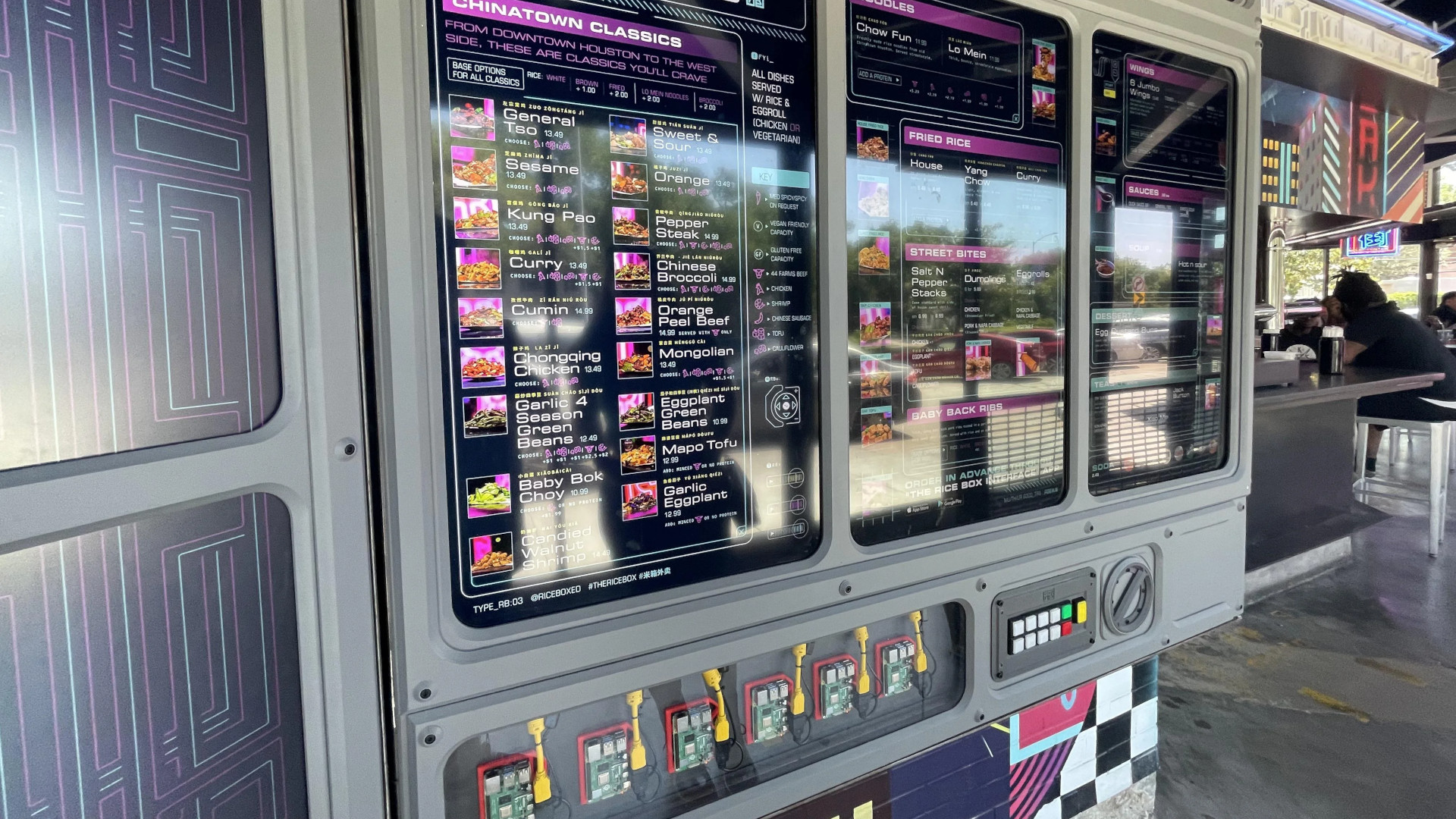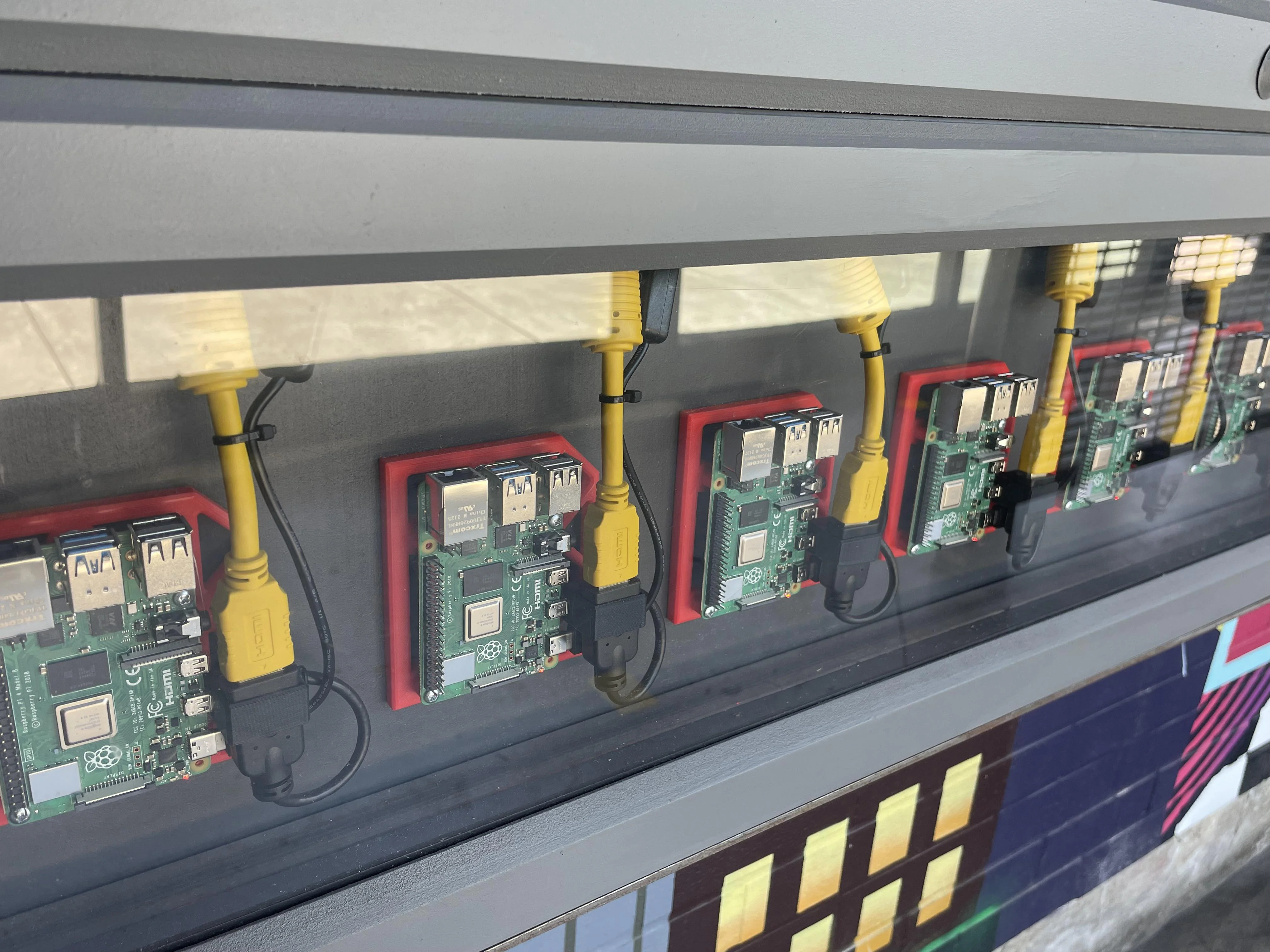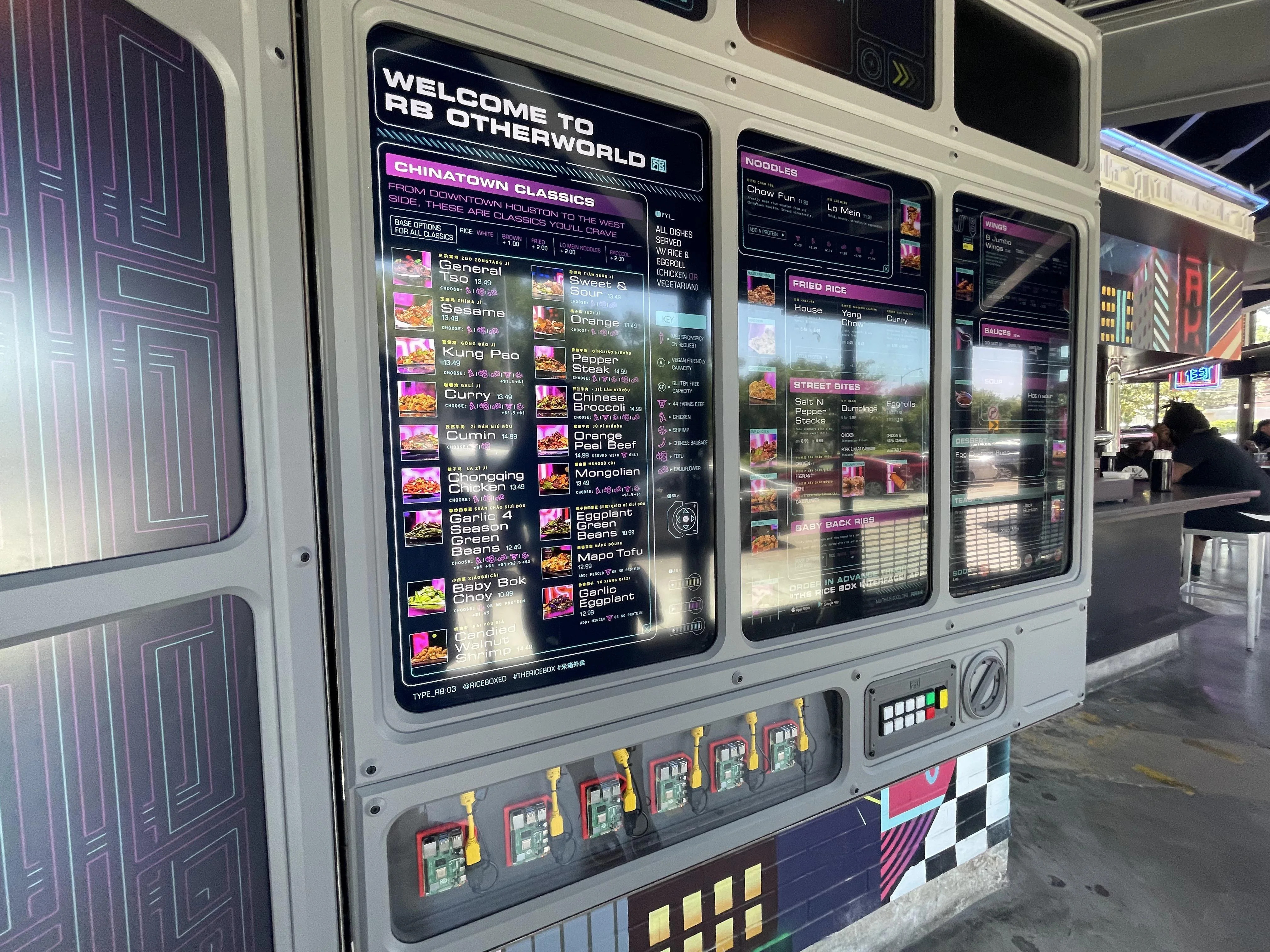
The Rice Box, a "Chinese take-out on the go," is a blur of Cyberpunk neon and sci-fi-influenced kiosks. Kiosks which are powered by six Raspberry Pi 4s. As spotted by Reddit user Paimonforsale, the kiosk resembles a 1990s sci-fi set, but six Raspberry Pi 4 are hidden in plain sight.
Putting raspberry Pi’s to work and showing them off from r/raspberry_pi
Located at the corner of Morningside Drive and Times Boulevard in Houston, Texas, The Rice Box is a recent addition to the area. It seems that the owners have a love for sci-fi, and the six Raspberry Pis are used to create a digital signage solution and given a prominent place in the display. Perhaps they are also fans of our favorite single-board computer?


Each of the Raspberry Pi's uses just one micro-HDMI output, and looking at the layout of the prop signage, we can see six screens. The most prominent are the three large screens showing the menu. Just above those screens are three more that seem to be there for set dressing, with sci-fi themed animations.
The Raspberry Pi 4 is protected behind a glass or plexiglass screen. How theft-proof they are remains to be seen. Each of the Raspberry Pi is mounted to a red frame. Each frame has telltale signs of 3D printing, with the top layer exposing the lines of filament. You could easily make these frames with any of the best 3D printers, or even a laser cutter. The PIs are powered using their USB C power supply, but that is it; no GPIO pins are used, nor are any of the USB ports. This means the many buttons and switches on the signage are mere set dressing. A real shame, as it would've been fun to have some sounds/lights react to user input.
The code to run the signage is unknown. It could be something custom using Raspberry Pi OS and a little Python. Most likely, it is something like DAKBoard, Screenly, or FullPageOS, which uses a Chromium browser in kiosk mode to display a web page. Using six Raspberry Pi 4s for six displays seems a little "overkill." The Raspberry Pi 4 introduced dual micro HDMI ports, each capable of outputting a 4K30 signal. Could these digital signage OS output to both HDMI ports at once? A quick glance at each of the features doesn't indicate that it is possible. But as they are based on Raspberry Pi OS / Linux, it wouldn't be too difficult to hack the feature into it.
Raspberry Pi have been used for digital signage since the board was released. The low cost and easy access (at the time) made it an obvious choice for signage makers. Even IKEA uses Raspberry Pi in its store signage. The Rice Box's overall build is impressive and exudes a Blade Runner aesthetic. Heck, we expected Rick Deckard to be ordering noodles in a neon rain-soaked world.







